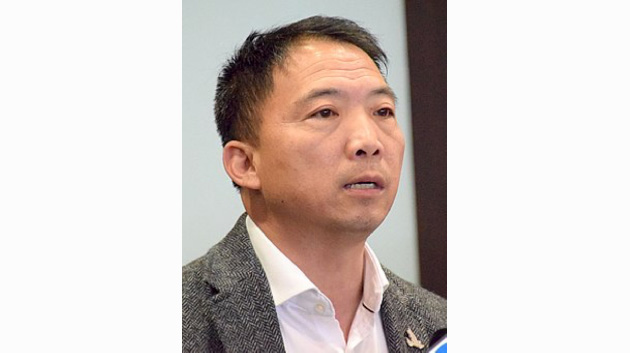Extradition Bill Means Ruin for Hong Kong
Wu Chi-wai Interview
Wu Chi-wai
Chairman of the Democratic Party (Hong Kong)
Wu Chi-wai, a powerful advocate for freedom in Hong Kong and Chairman of the Democratic Party, spoke to the Liberty Magazine about what impacts the extradition bill could have on Hong Kong.
–Why is the Hong Kong government in such a hurry to enact the extradition bill?
Wu: I don’t know why the government needs to enact the bill in such a short time. The only reason I can think of is that it was an order from the Mainland government.
This bill gives the Mainland government the authority to extradite anyone living in Hong Kong into China. People in Hong Kong don’t believe that if the order comes from the Mainland government, the Chief Executive can object to extradite.
The One Country Two Systems policy is supposed to protect freedom in Hong Kong, but now foreign journalists and activists who are critical of China are being denied visas to re-enter Hong Kong. People consider the extradition amendment will put them under the fear that Mainland law.
The Bill Will Destroy the Hong Kong Economy
–If they pass the bill what would happen to the people of Hong Kong?
Wu: I don’t think anything will happen immediately, but it will have a dramatic impact in two places.
The first is the impact on the Hong Kong economy. Right now, we can make actions that may break the Mainland laws as long as we are in Hong Kong and comply to the laws here. But after the bill passes, Hong Kong will no longer be a safe place for people coming to work from overseas.
Will businessmen and investors continue to invest in Hong Kong knowing these risks? If they don’t fear risk, they might as well invest directly in China, where operating expenses are lower. If they want to avoid the risk, they will most likely transfer their businesses out of Hong Kong to another country close by, like Singapore. Either way, Hong Kong will no longer be a safe place to invest, and the economy will lose its energy.
As a result, Hong Kong will increasingly have to rely on investments from the Mainland. In the last 20 years, investments from the Mainland has already taken 60% of Hong Kong’s stock market capitalization, but the bill will cause this to expand further in which Hong Kong economy will be even heavier relying on China and that will make Hong Kong less international.
The other place of impact is that there will be a huge number of people wanting to emigrate. Many people seek a place of safety and security for the next generation. And if this happens, Hong Kong will never be the same again.
The Hong Kong government wants this country to be a place where we can invite intellectuals and specialists from overseas to make innovations and new creations, and develop technology. But if the bill passes, the possibility for that becomes highly doubtful.
People’s Attention Can Change the Situation
–Unfortunately, the majority of members on the Hong Kong Legislative Council are pro-China. How can we stop the Ordinance from being enacted?
Wu: I’m now directing the Hong Kong people’s attention and concern onto this problem. As you said, the majority of the Legislative Council is pro-China and it would be very difficult to stop the bill from passing. That’s why we want as many people as possible to join the protest gatherings. [N.B. On 9th June, after this interview was taken, an unprecedented 1.03 million people gathered in protest against the bill.] This is the only way we can influence the decisions of the pro-China legislators.
–How can the people in other countries do to protect freedom in Hong Kong?
Wu: This isn’t just about protecting freedom in Hong Kong. This problem is also about protecting other countries, like Japan.
Right now there are many Japanese businessmen living and working in Hong Kong. And Japan has a duty to protect the Japanese citizens living here. Protecting your own national interests will regards to Hong Kong will end up protecting the interests of the people of Hong Kong.
It’s not only about Japan. Other countries that have national interests at stake in Hong Kong should stand up against those interests being endangered.



















